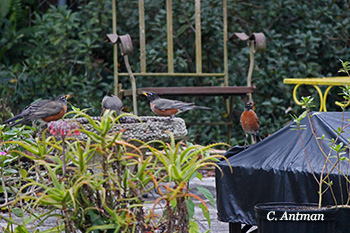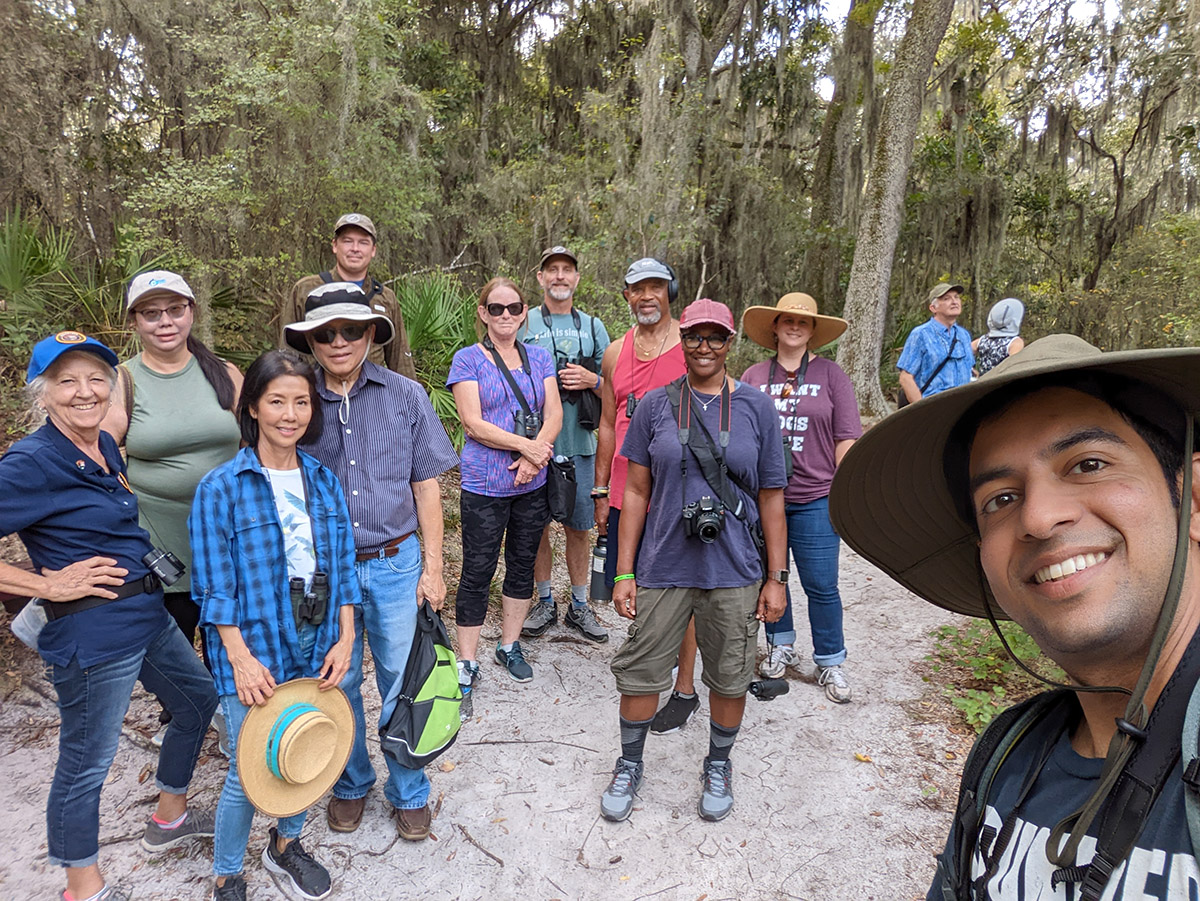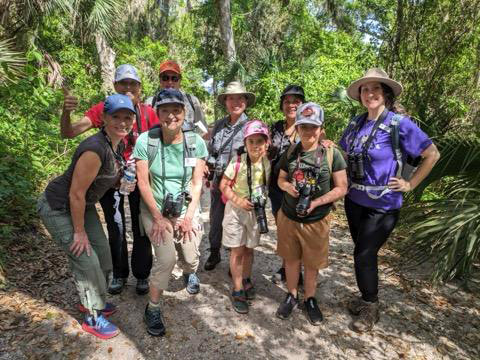Creating Bird-Friendly Habitat

Birds face threats from many sources including climate change, habitat loss and poisoning from chemical contamination of their food and water. There are several things that any individual can do to help the birds in their community. Educating oneself and others about the risks to birds as well as speaking out for the birds are two ways to help, but creating a bird friendly habitat in one’s own yard or neighborhood can be fun and rewarding to both people and birds.
To help guide this process, Audubon's Plants for Birds program is designed to help you choose plants that will thrive in your particular area. They have included a native plants database where you can create a customized plant list based on your zip code. Audubon is committed to the sustainability of our communities - urban, suburban and rural. Each plays a vital role in connecting habitat for our birds to thrive.
Here are a few suggestions to get started:
- Plant native plants: Native plants are adapted to the weather changes that we experience here in Northeast Florida. They are both drought and deluge resistant and can tolerate the heat of our summers and the occasional freezes in winter. They support the native insect population, which supports the native birds, but are hardy enough to resist total devastation from it. They grow the seeds and berries that our local and migrating birds need. A yard full of beautiful exotic plants has none of these qualities and requires extensive watering and chemical support.
- Build a brush pile by layering fallen logs and branches in a loose structure. This can provide shelter for birds in severe weather and extreme temperatures.
- Limit the use of fertilizers and pesticides: Chemicals that control insects also reduce the amount of food available to the birds, as well as poisoning the bugs that they eat. Fertilizers add potentially harmful chemicals to the ground and should be used sparingly and according to the provided directions. Chemicals for weed control need to be specifically targeted and, again, used sparingly and according to the directions.
- Provide a source of clean water: Flowing water is best. Something as simple as a shallow clay saucer will work. Birdbaths should be clean and SAFE! Be sure your bird bath/feeder is not a feeding ground for local cats.
- Protect windows, especially large picture windows, from accidental collisions. Many products are made and techniques developed to alert the birds that a pane of glass is present.
- Turn off lights at night during migration season (March through May, and September through November). Songbirds that migrate primarily at night can become disoriented and confused by bright nighttime lighting, often causing deadly collisions with buildings and windows. Learn more here.
- Provide birdhouses/nesting platforms for nesting birds built to specific guidelines for different species.
- If you provide feeders, consider participating in Cornell Lab of Ornithology's Project Feederwatch, a November-April survey of birds that visit backyards, nature centers, community areas, and other locales in North America. Here is a helpful article about feeding birds in Florida based on data from Project FeederWatch
Additional Resources:
- Download our Bird-Friendly Toolkit to learn more about how to make your home or building bird-safe.
- Wild Birds Need Your Help - Twelve things you can do to help wild birds survive the many challenges they face.
- Creating Bird-Friendly Communities – This page on Audubon's website offers information on a national scale and includes ideas for cities as well as backyards.
- Natives for your Location – This website from the Florida Native Plant Society allows you to search by county for native plants that are best for your area.
- Florida-Friendly Landscaping Program™ – This program was developed by the University of Florida IFAS (Institute of Food and Agricultural Sciences) Extension. Less specific to birds, but good landscaping practices.
- Help Birds Avoid a Deadly Collision – Audubon's tips for how you can help birds avoid deadly window strikes.
- Bird-friendly Window and Lighting Standards – From the Sustainable Development Code, a website dedicated to helping local governments build more resilient, environmentally conscious, economically secure, and socially equitable communities; describes bird-friendly windows and lighting standards for local municipalities.
- Right Bird, Right House – Nestwatch.org's tool to help you find out which birds you can build a nest box or nest structure for in your region and habitat.



